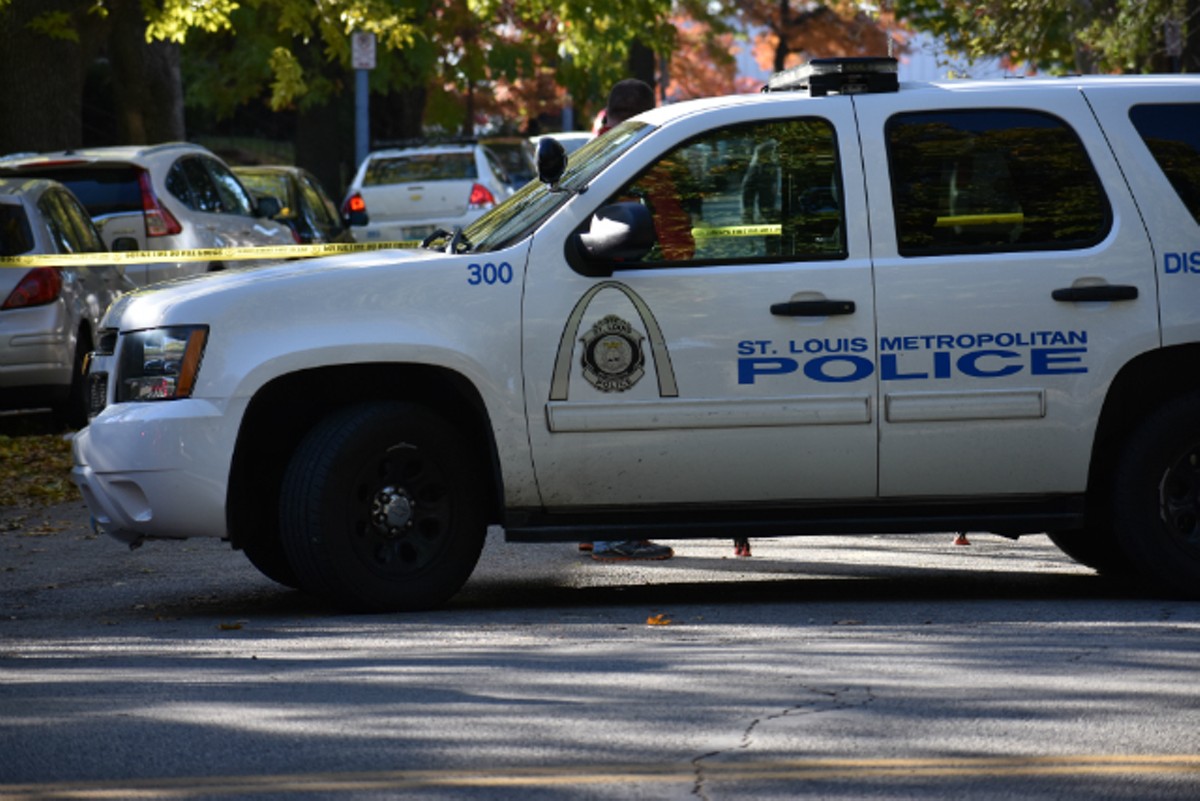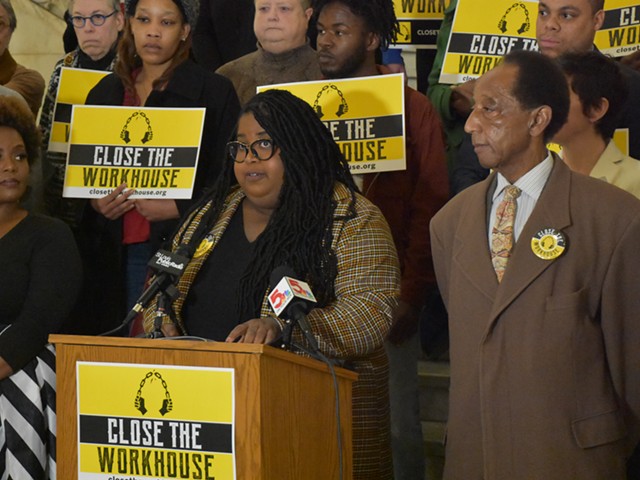For the longest time, I've held the politically incorrect view that the city of St. Louis needed to scrap all of its residency requirements related to jobs in its government, including police.
It's a matter of simple math. Where once St. Louis was a booming city of more than 850,000 and the overwhelmingly dominant population center of the region, it is now struggling to hover above 300,000, a number that reflects less than eleven percent of the people living in the St. Louis metropolitan area.
The idea of limiting the public hiring pool for any purpose — especially police in a crime-ridden community — is counterintuitive. Telling eight out of nine St. Louisans that they need not apply unless they're willing to relocate their home isn't a smart strategy for upgrading a city government that virtually everyone agrees needs upgrading.
There's also this: We need to start thinking as a region in St. Louis and not as feudal fiefdoms. The 2.5 million of us who live in St. Louis but not in "the city of St. Louis" really need to lose the habit of viewing everything that's great about the city as "ours" and everything that's bad about the city as "theirs."
The flip side is that city residents need to embrace non-residents as their friends and neighbors, not outsiders. Residency rules designed to shun non-residents are inhospitable. Residency rules designed to discourage city employees from moving out are insecure.
But if I might dismount my haughty perch for just a moment, all these noble principles of love and unity and regionalism and cooperation are truly eclipsed by a more urgent one: Whatever challenges face St. Louis — city or region — cannot be punted to Jefferson City for the purpose of imposing the state government's higher wisdom upon us.
We must not come down with Better Together Disease.
I mention this because Mayor Lyda Krewson is foolishly embracing an effort spurred by Attorney General Eric Schmitt that would have the state of Missouri overturn the expressed will of the Board of Aldermen by eradicating the aforementioned city residency requirements.
As they like to say in outstate Missouri, that dog won't hunt. Allowing state politicians to invalidate the voted-upon position of duly elected city officials — in this case, the Board of Aldermen — isn't just a bad idea, it's a toxic one. I happen to disagree with the board's refusal last fall to put the residency issue to voters, as they rightly wanted to do for airport privatization — but it is what it is. That's democracy.
The current effort to appeal to Jefferson City is much larger than the residency issue, which at the end of the day, isn't all that apocalyptic. If state government (or statewide voters) can blow off the views of city officials on this issue, what makes you think it won't happen regarding the airport or a thousand other matters? It's not like they haven't done it on gun control and the minimum wage.
And of the mayor herself, with whom I agree on residency, I'd ask: How would you like it if you vetoed a bill from the Board of Aldermen, but after lacking the votes to override your veto, the aldermen just went to Jefferson City to "correct" the situation legislatively? I'm guessing not so much.
And it's not just a cautionary tale for St. Louisans within the city limits. What if the state legislature decides the St. Louis County Council needs correction with regard to its police policies or structures? Can you imagine how much the St. Charles County Council would appreciate having one of its actions overturned in Jefferson City?
I don't pretend to be unbiased, thanks to my unabashed cynicism about Missouri state government based upon, oh, about a half-century of following its adventures. Our state government is to sound public policy what Inspector Clouseau was to forensic science.
And there's the stunning hypocrisy of a government dominated by "state's rights" Republicans — fierce advocates of "government closer to home" when it's their homes at stake — happily embracing the role of Big Brother when it comes to preventing "those people" in the city from dragging down our glorious state.
But that's not the ultimate point: Even if we had the smartest, most creative, most efficient state government in the world, it would be the antithesis of democracy to deny any local community the right to fix its own problems. Or not fix them.
The counterargument, I'm guessing, is that state officials have some higher obligation to all Missourians to protect them from the havoc that would be wreaked if St. Louis — the state's largest economic engine — were to fall off of a fiscal cliff. If that's your view, please send me a link to a state House or Senate floor debate about what Jefferson City can do by way of helping its large urban areas. Good luck finding it.
Furthering the irony, the worst of St. Louis' crime problems are rooted in sociological deficiencies for which Missouri state government has dirty hands: Racism, dramatic inequalities in education, health care, services for the disabled, food, housing, transportation — you name it — our state has failed the least fortunate among us for nearly two centuries. No, that doesn't absolve people and communities of their own responsibilities. But, yes, nothing in St. Louis is getting fixed by Jefferson City.
It would certainly be nice if St. Louis could address its crime issues by focusing on causes, not symptoms. The crime problem cannot be laid at the doorstep of police, and it cannot be fixed by police. That said, you can hardly blame city residents wanting to see more officers on the street. And you can't blame them for wanting officers who are better paid and trained and more empathetic and so on.
Do I think lifting the residency requirements for police will fix that? Of course not. It's just a hurdle to remove. Just like making the city's hiring practices more responsive and efficient would be. Aldermen are right to cite constituent complaints that they haven't received a response when applying for jobs. Or that the relative lack of internet services to poor people in general, and blacks in particular, skews the system against them.
But in the same city, employees of the "county" offices — treasurer, circuit attorney, et cetera — aren't required to live in the city (except for the officeholder). Employees of the city schools don't have to reside in the city.
Perhaps incentives can be offered for people to live in the city and work in city government. Maybe there could be bonuses or higher pay grades, just as points are awarded to city-resident applicants for government jobs.
But there's no "maybe" about this: The dysfunction of city government is getting old. At some point, there has to be some give and take between the mayor and Board of Aldermen to end all the gridlock. If it's trading residency rules for repealing the 2012 measure cutting the board's size, so be it. If it's about some other area of compromise, great.
Someone, somehow, has got to step up as a leader.
Meanwhile, back in Jefferson City, the most interesting news of the week was an inane initiative by Gov. Mike Parson to spend $50,000 on valet parking for legislators. Nice symbolic idea for the 40-something-ranked state in just about everything.
What was that again about them fixing St. Louis?
Ray Hartmann founded the Riverfront Times in 1977. Contact him at [email protected] or catch him on St. Louis In the Know With Ray Hartmann from 9 to 11 p.m. Monday thru Friday on KTRS (550 AM).






